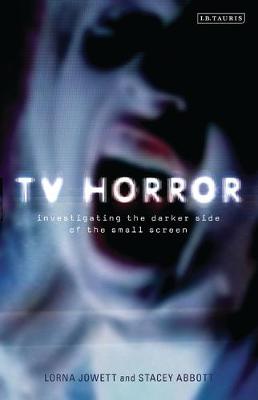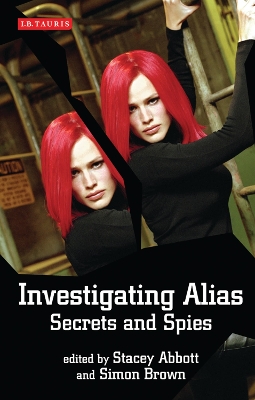Investigating Cult TV
2 total works
Horror is one of the most pervasive of contemporary TV genres with shows like True Blood, Being Human, The Walking Dead and American Horror Story making a bloody splash across our television screens. Yet not too long ago critics and horror writers claimed that television and horror were incompatible bedfellows. TV Horror: Investigating the Dark Side of the Small Screen explores the often contradictory relationship between horror and television and shows how this most adaptable genre has continued to be a part of the broadcast landscape, unsettling audiences and pushing the boundaries of acceptability. Lorna Jowett and Stacey Abbott demonstrate how TV horror continues to provoke and terrify audiences by bringing the monstrous and the supernatural into the home, whether through adaptations of Stephen King and classic horror novels, or by reworking the gothic and surrealism in Twin Peaks and Carnivale.
They uncover the omnipresence of horror in mainstream television from procedural dramas to children's television and, through close analysis of landmark TV auteurs including Rod Serling, Nigel Kneale, Dan Curtis and Steven Moffat, as well as case studies of Dark Shadows, Dexter, The League of Gentlemen, Pushing Daisies, Torchwood, and Supernatural. They expand debates about the nature of horror by exploring its evolution on television. The historical breadth of the discussion, alongside detailed analysis of an exciting and diverse selection of television series, makes this book a must-have for those studying TV genre, as well as for anyone with a taste for the gruesome and the macabre.
They uncover the omnipresence of horror in mainstream television from procedural dramas to children's television and, through close analysis of landmark TV auteurs including Rod Serling, Nigel Kneale, Dan Curtis and Steven Moffat, as well as case studies of Dark Shadows, Dexter, The League of Gentlemen, Pushing Daisies, Torchwood, and Supernatural. They expand debates about the nature of horror by exploring its evolution on television. The historical breadth of the discussion, alongside detailed analysis of an exciting and diverse selection of television series, makes this book a must-have for those studying TV genre, as well as for anyone with a taste for the gruesome and the macabre.
First aired in 2001, "Alias" is a spy drama with a central action heroine, a complex narrative of moral twists, turns, lies and double-crosses, and an imaginative array of gadgets, gizmos and glamorous costumes. It has become a leading cult television series with a loyal fan following. In the wake of 9/11, "Alias'" themes of doubles and duplicity have been perfectly placed to comment on global relations and the personal paranoias of post 9/11 citizens. But as much as "Alias" reflects contemporary global politics, at its core are themes of family and relationships. The series is ending with a bang in 2006 and "Investigating "Alias"" is the first book to give a full and fascinating examination of the series in its entirety, with a complete episode guide. Placing the series within the wider context of American Quality Television and the spy genre, contributors consider the central role of family, race, gender and moral ambiguity in "Alias". They also focus on the creator of "Alias", JJ Abrams, and discuss the development and influence of the fan world beyond the series with in-depth studies of DVD releases, tie-in, fan and slash fiction. is the first book to give a full and fascinating examination of the series in its entirety, with a complete episode guide.

